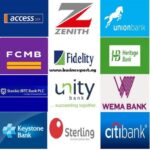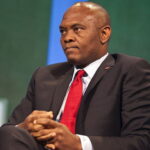The Bank Directors Association of Nigeria (BDAN) has disagreed with the views expressed by the Chairman of First Bank Nigeria (FBN) Holdings, Mr Femi Otedola and his counterpart in Heirs Holdings, Mr Tony Elumelu, over the proposed foreign exchange windfall tax.
The association stated that the views expressed by them in support of the tax were personal opinions and did not represent the stance of the entire banking community.
It would be recalled that the National Assembly has passed the bill which imposes a ‘windfall tax’ on commercial banks that benefited from the Central Bank of Nigeria (CBN) subsidies on forex with stakeholders kicking against the proposed levy.
But Otedola recently endorsed the new policy while criticising bank officials over profligacy and extravagant spending, including the purchase and maintenance of private jets.
- NIGERIA DAILY: Are Nigerians Satisfied With Tinubu’s Speech?
- First Bank emerges Nigeria’s Best Bank in ESG
“Nigerian banks are spending an estimated $50 million annually just on maintaining private jets, with over $500 million spent on purchasing nine private jets by four banks,” Otedola said in a recent statement.
The Chairman of the United Bank for Africa, Tony Elumelu, also approved of the move, saying it was aimed at alleviating poverty.
But BDAN said the views expressed by both Otedola and Elumelu did not represent the position of the banking community, assuring the public that its official position would be made known after its scheduled board meeting on August 12, 2024.
BDAN Chairman Mustafa Chike-Obi, in his posts on his X (formerly Twitter) handle, said, “I have read the personal views of some bank chairmen on the windfall tax issue. Those views do not represent the banking community. BDAN will communicate its views after our board meeting on the 12th, on this and other very important issues concerning our community.”
Proshare Research, a financial intelligence company based in Lagos, in its analysis titled, ‘The Pains of A Windfall Tax: Appraising the NASS’s Financial Act Amendment’, stated that Nigerian banks would need to pay tax arrears on liabilities for 2023, requiring a restatement of their accounts by the end of December 31, 2024.

 Join Daily Trust WhatsApp Community For Quick Access To News and Happenings Around You.
Join Daily Trust WhatsApp Community For Quick Access To News and Happenings Around You.

